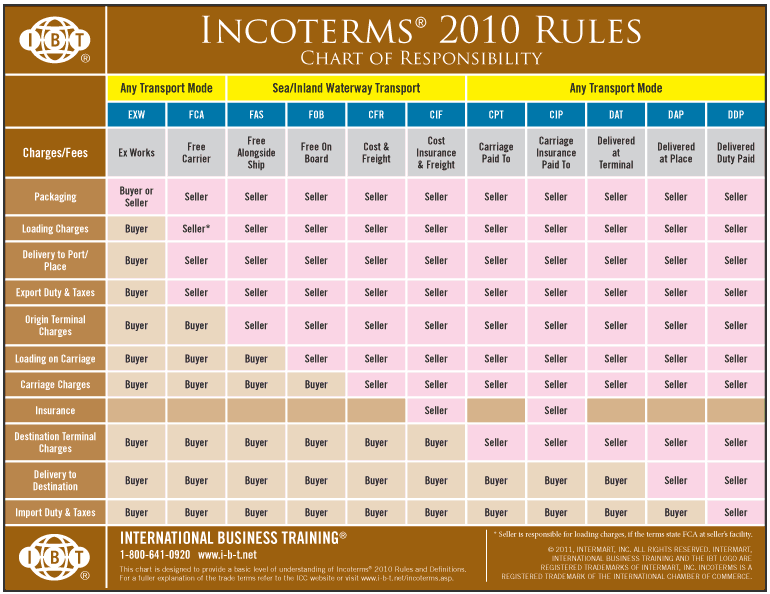FAQs
Incoterms® are a set of rules which define the responsibilities of sellers and buyers for the delivery of goods under sales contracts for domestic and international trade. They are published by the International Chamber of Commerce (ICC) and are widely used in international commercial transactions. The most recent version of Incoterms®, Incoterms® 2010, was launched in September 2010 and became effective January 1, 2011.
The two main categories of Incoterms® 2010 are now organized by modes of transport. Used in international as well as in domestic contracts for the first time, the new groups aim to simplify the drafting of contracts and help avoid misunderstandings by clearly stipulating the obligations of buyers and sellers.
Group 1. Incoterms® that apply to any mode of transport are:
- EXW Ex Works
- FCA Free Carrier
- CPT Carriage Paid To
- CIP Carriage and Insurance Paid To
- DAT Delivered at Terminal
- DAP Delivered at Place
- DDP Delivered Duty Paid
- FAS Free Alongside Ship
- FOB Free on Board
- CFR Cost and Freight
- CIF Cost, Insurance, and Freight
Source: (http://www.export.gov/exportbasics/eg_main_017485.asp)
Click here for more detailed information.

- 20’ container - approximately 25 cubic meters / 16,800 kg
- 40’ container - approximately 55 cubic meters / 20,000 kg
- 40’ high cube (HQ) container - approximately 65 cubic meters / 20,000 kg
- 45’ container - approximately 80 cubic meters / 20,000 kg
https://www.entrepreneur.com/encyclopedia/fulfillment
If you have specific inquiries regarding fulfillment, please email Ivan at ivanc@oeigroup.com
Our Services
We are a full-service freight forwarding agency that provides import and export services for companies and individuals to and from anywhere in the world.
View Our ServicesContact Us
We welcome any comments or questions that you may have regarding our services. We look forward to hearing from you.
Send Us a Message